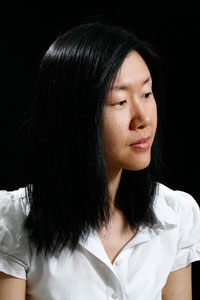'Revenge" is a world I hear frequently in nearly every Chinese martial arts movie. I don't remember how many I watched when I was young, but it was enough to make me learn the famous phrase "nee khaen tong chamra" and make fun of it with my friends.
The old Chinese expression, which can be roughly translated to "revenge is a dish best served cold", was the central theme of most kung fu flicks. Still vivid in my memory is the typical scene of a hero, down on his knees, solemn-faced in front of his father's tomb, swearing to "take vengeance" on the murderer.
I no longer watch these kinds of films. Sadly, I come across true stories of revenge-inflicted murders in the news on an almost-daily basis. I've tried to understand the motivations behind these deadly retaliations, but what saddens me most is when faith is used to justify murder.
The Charlie Hebdo massacre in Paris, which claimed 12 lives earlier this month, shocked the world and drew fierce criticism against religious fanaticism. It's hard to imagine that people would be crazy enough to go on a killing spree, claiming the act was to honour their prophet.
Although I never approved of the French satirical newspaper's frequent use of Mohammed as an object of derision, seeing those cartoonists paying for their offensive senses of humour with their lives made me feel really bad.
People around the world, including a majority of Muslims, condemned the cruel attacks, but nonetheless the same old questions arose. Is Islam a religion of violence? Did Mohammed allow his followers to kill people who insulted him? Is revenge a teaching of Islam?
No matter how many Muslims have tried to explain that the gunmen, who were killed following the massacre, were just crazy, that their gruesome acts had nothing to do with Islamic teachings and that Islam is a religion of peace, many remained doubtful. This is understandable.
This is not the first time innocent people have lost their lives to Muslim extremists, who choose violence over tolerance when their faith is challenged. And don't forget about the terror Islamic militants have caused in many parts of the world over the years. For many, this is enough to conclude that Islam is full of flaws.
I don't know what is said in the Koran, but I learned from a devout Muslim friend that careful interpretation is necessary when studying the holy book, as some Muslims with malicious agendas find ways to decipher its teachings in their own way.
Doesn't this sound familiar to the Buddhist world? Don't we have monks who betray Buddha's teachings in favour of their own ideologies and interests? Don't we see people who choose to follow blind faith over Buddha's words, but still claim to be Buddhist?
This is a typical problem faced by every religion. It's rather naïve to blame only the Muslim faith.
The Charlie Hebdo killings have resulted in serious repercussions on the Islamic world, and many are concerned that Muslim immigrants, especially in France, might become targets of more discrimination, prejudice and — in worst-case scenarios — retaliation.
I don't know when we will see reconciliation. But we can learn something from two men who learned to let their wounds heal and moved on to spread messages of peace and forgiveness.
The name Mark Stroman is familiar to many who know the story of his shooting rampage in Texas in 2001, an act carried out in the wake of the Sept 11 terror attacks. The 41-year-old Dallas native, who dubbed himself the "Arab Slayer", shot dead two immigrant workers whom he thought were Arab, and seriously injured Rais Bhuiyan, a 27-year-old Muslim immigrant from Bangladesh. He called his shooting spree "patriotic" retribution for the terror attacks. He was imprisoned and executed.
The story drew much attention from the media. Bhuiyan, the lone survivor of the hate crime, which resulting in him losing sight in one eye, appealed to court many times in an attempt to save Stroman from the death penalty.
"In Islam it says that saving one human life is the same as saving the entire mankind. Since I forgave him, all those principles encouraged me to go even further, and stop his execution and save another human life," Bhuiyan told the media.
According to the report, Stroman was moved by Bhuiyan's efforts. He called Bhuiyan a remarkable man, saying that Bhuiyan's deep Islamic beliefs have given him the strength to forgive the unforgivable.
Stroman was executed in 2011.
"Hate is going on in this world and it has to stop," he said in his final moments. "Hate causes a lifetime of pain."
I hope their story will touch and inspire many hearts.
Patcharawalai Sanyanusin is a writer for the Life section of the Bangkok Post.
